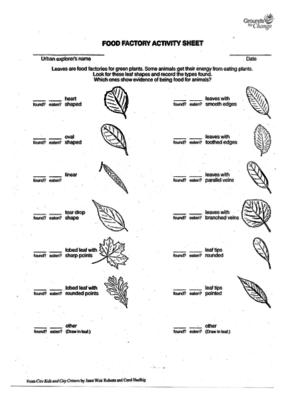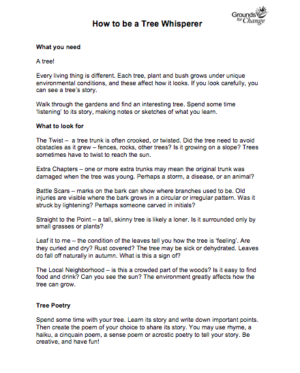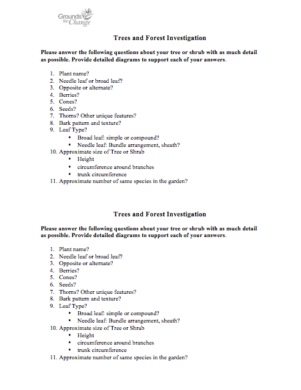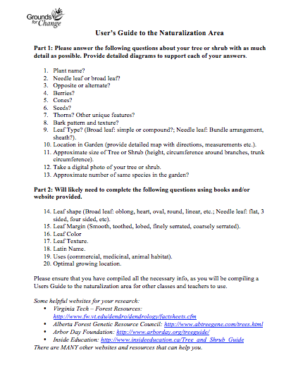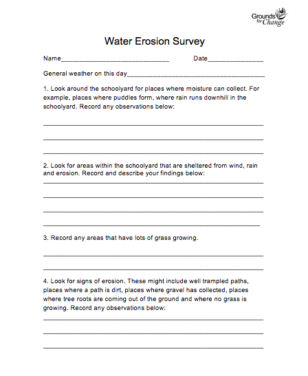-
Discuss shapes, leaves, leaf shape, animal diet, herbivores, trees, tree parts, evidence of eaten leaves and leaf shapes on the worksheet. Students hunt for different leaf shapes and look for signs that they have been eaten. Wrap-up: rare and common leaf shapes, number of eaten leaves, etc.
-
Tree poetry is exactly what it sounds like – a poem about a tree! Students observe a tree in the natural area or at home, and create a poem about it. Encourage students to spend some time with their tree, learn its story and write down important points. Then have students create a poem of their choice (rhyme, haiku, etc.) to share its story. Wrap up: students share their poems, and revisit proper poem structure in class.
-
Following discussion on plant parts, dichotomous keys/important terms and measurement techniques use this activity as reinforcement for all three topics. Have students choose and identify one tree or shrub in the natural area, answer each question on the handout in a journal, and include sketches for each. Wrap up: have students share one cool thing about their plant.
-
Learn about local naturalization areas and the specific plants within them. The class will create their own guide to a naturalization area (schoolyard or otherwise) through observation and online research of a chosen plant. Wrap up: have each student present his or her findings; put the finished projects together into a “real” guide for display.
-
Students will explore the schoolyard to find examples of water erosion and compare these examples to areas found with little/no erosion. Wrap up: Discuss students’ findings and why some areas are more prone to erosion than others.

